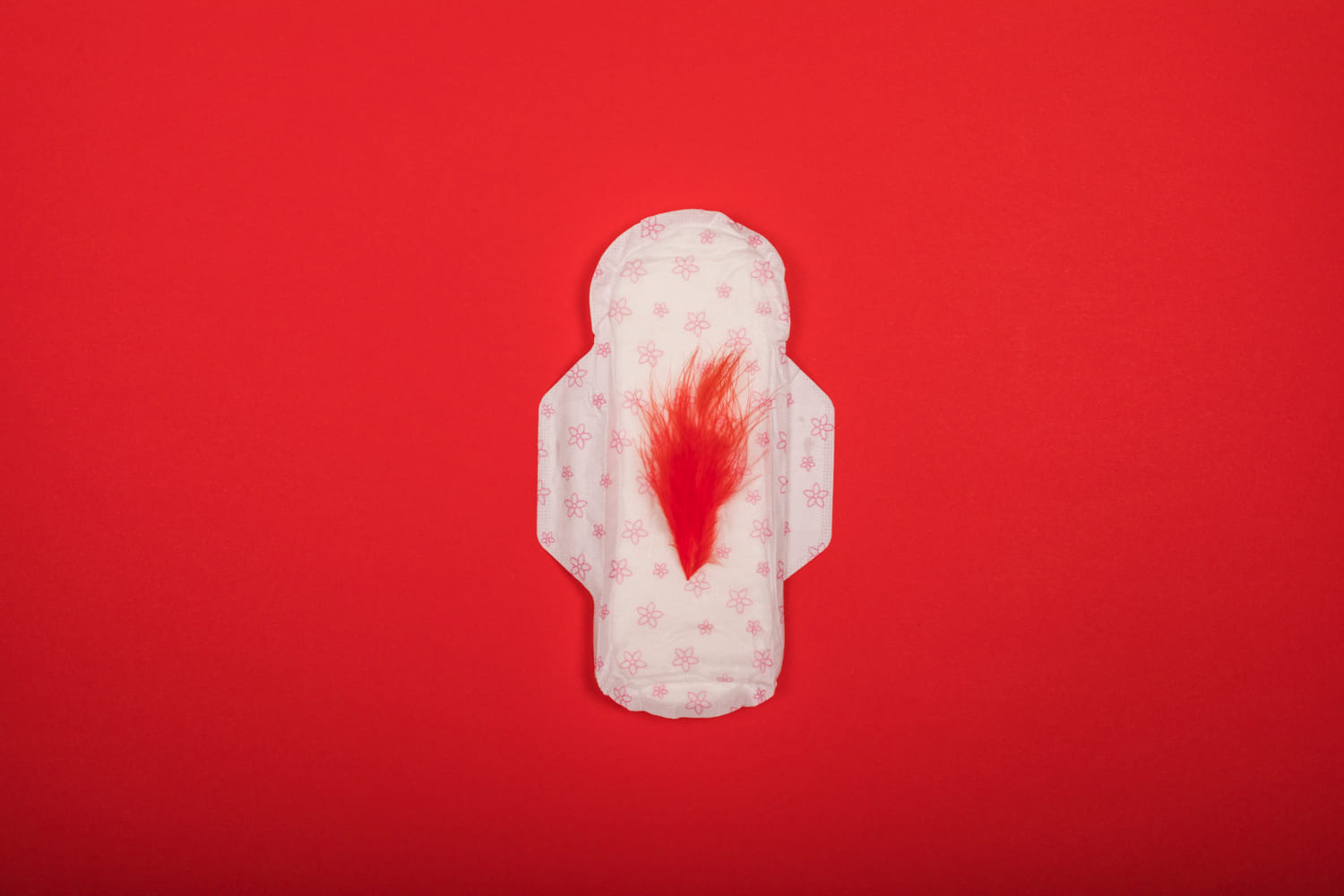
Top 4 Harmful Chemicals in Conventional Pads You Should Know About
If you’ve never questioned what goes into your pad, it is not really fault. These ingredients are rarely listed, and the marketing is often more focused on thinness or absorbency than safety.
So let’s pull back the curtain. Here’s what you deserve to know.
1. Chlorine bleach & dioxins
Chlorine is commonly used in swimming pools, industrial bleach, and toilet cleaners. Sounds harsh? That’s because it is. But chlorine compounds are still used in the bleaching process for many mainstream pads to give them that pristine white look.
This process can leave behind dioxins, toxic chemicals that remain in the body and are linked to:
-
Reproductive harm
-
Hormonal disruption
-
Endometriosis
-
Increased cancer risk over time
We use gloves when handling bleach at home. But many of us wear bleached pads against our most delicate skin every month.
According to the Blood, Sweat and Pesticides report (Wen, 2025), dioxins are persistent environmental pollutants, and exposure, even in trace amounts, accumulates over time, especially when used regularly.
2. Synthetic fragrance (aka: the mystery cocktail)
You know that “fresh” or “clean” scent in some pads? It’s usually made from undisclosed fragrance chemicals, often including:
-
Phthalates (used in vinyl flooring and plastics)
-
VOCs (found in air fresheners, nail polish remover, and paint thinner)
These substances are known endocrine disruptors and skin irritants. The problem? Menstrual product companies aren’t required to list what’s in these fragrance blends, so you’re never truly sure what you’re absorbing.
We avoid breathing these in at salons or paint shops, but somehow, they’re allowed to sit on our skin for hours during our periods.
3. Plastics and super-absorbent polymers (SAPs)
Many conventional pads contain plastic top sheets (think cling film or food wrappers) and SAPs, high volume of super-absorbent polymers also used in baby diapers and adult incontinence products.
Yes, they absorb well, but they can also:
-
Trap heat and moisture, causing chafing or rashes
-
Create a breeding ground for bacteria
-
Take 500–800 years to decompose
Wearing these materials is like wrapping your most sensitive area in a plastic bag. Not exactly breathable.
4. Pesticide residues in conventional cotton
Here’s the part no one talks about: cotton is one of the most chemically-treated crops in the world. When not organically grown, it’s sprayed with:
-
Glyphosate (a weedkiller under scrutiny for cancer risk)
-
DDT and lindane (banned in many countries but still present in some cotton farms)
-
Heavy-duty chemical fertilizers and insecticides
These residues can remain in the final product, even the part that touches your skin.
We’d never knowingly wear clothes laced with pesticides. But our pads? We’ve been doing that for years without realizing it.
The Wen report also reminds us that the women working on these cotton farms are exposed to these same chemicals daily, putting their reproductive health at risk for our “convenience.”
Why are these materials still used?
The simple answer? They’re cheap, unregulated, and easy to mass-produce.
-
There’s no legal requirement for brands to fully disclose pad ingredients in most countries
-
The focus is often on product performance, not body safety
-
Many large brands rely on plastic, bleach, and synthetics to cut costs and extend shelf life
So, what can you do?
You don’t have to overhaul your entire routine overnight, but awareness is powerful. If you have the option to switch to safer period care, it’s one of the kindest choices you can make for your body.
How Fizabelle is different?
At Fizabelle, we believe you deserve transparency, comfort, and care.
That’s why our pads are made with:
✔️ An organic cotton top sheet — soft, breathable, and gentle on your skin
✔️ A biodegradable, chlorine-free core — better for your body and the environment
✔️ Zero fragrance, dyes, or synthetic plastic-feel layers
✔️ Recyclable, hygienic envelopes — thoughtfully designed for storage and disposal
We don’t cut corners. We don’t hide ingredients. Because your period care should protect you, not expose you.
You’ve probably never looked at a pad the way you look at your skincare label, but maybe it’s time we all started to.
If this is your first time learning about these hidden chemicals, you’re not alone. Most of us had no idea. But now that you know, you get to choose something better.
You deserve period care that respects your body. Fizabelle is here for that.














